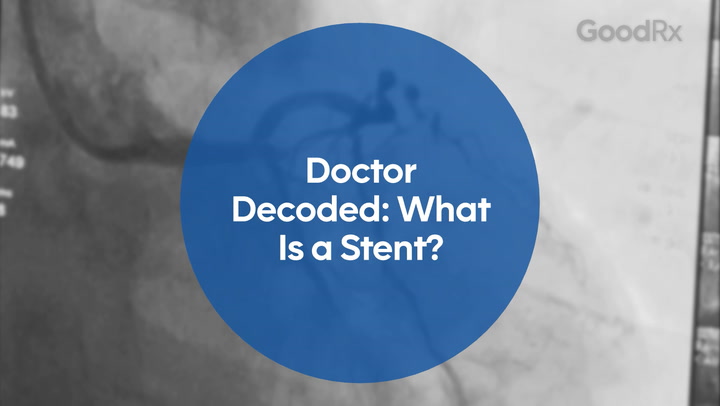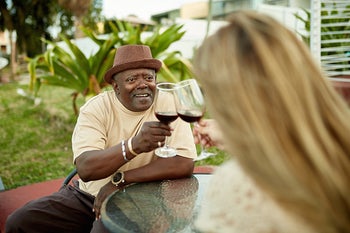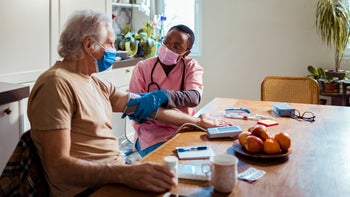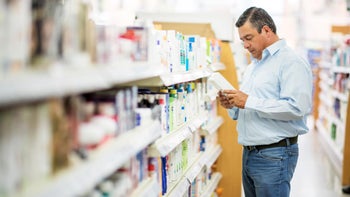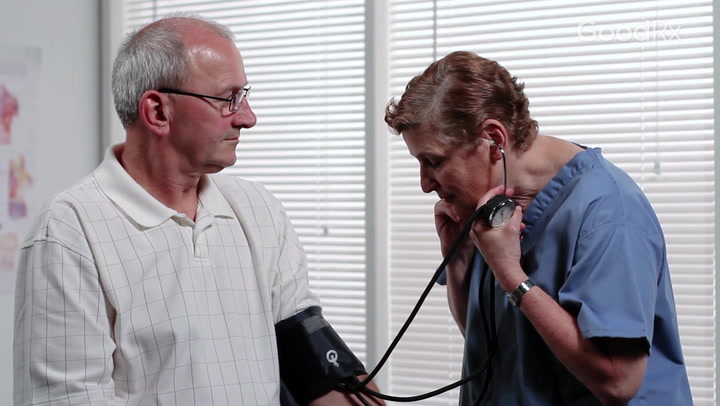
What You Should and Shouldn’t Do After a Heart Attack
Key takeaways:
It is probably safe to resume many of your normal activities after a heart attack, but it’s best to make a plan with your healthcare provider before you start.
Physical exercise is one of the most important ways you can improve your health and lower the risk of another heart attack.
Extreme temperatures, stress, and very strenuous exercise can put too much strain on your heart, so take it slow.
A heart attack can be a life-altering event. Many people worry about returning to normal after a heart attack. The good news is, you’ll most likely be able to get back to all the things you enjoy. In fact, working toward getting back to normal is important and can decrease your risk of having another heart attack.
This post will cover what to expect for your regular activities after a heart attack and what changes you can make to protect your heart health.
When can I get back to normal after a heart attack?
Many people wonder about when it is safe to get back to everyday activities after a heart attack. How long it takes to get back to usual can be different for different people and for different activities.
Your overall health and the type of heart attack you had may affect the activities you can do and how quickly you can do them. Your healthcare provider can help you decide which activities are safe and how long you may need to wait to start doing them.
In general, here’s what you can expect. Remember, each person’s situation is unique, and you should make a plan that works for you with your healthcare team.
Transportation: For most people it is safe to drive 1 week after having a heart attack. Flying can be safe after 2 weeks. Check with your provider to see what’s right for you.
Travel: Traveling with heart disease in general can be safe, but you may need to plan a little differently. For example, in choosing a travel destination, you may need to think about if and how the altitude of the location may affect your heart. Altitude changes are not always a problem for people with heart disease, but they could cause symptoms like chest pain or shortness of breath in some cases. It is also important to bring along a list of all your medications and to find out ahead of time about the medical services available at your destination.
Sex: Sexual activity can be safe for most people after a heart attack, but medical professionals typically recommend waiting 3 to 6 weeks. Medications for erectile dysfunction — such as sildenafil (Viagra) — can be safe, but should not be used together with nitrate therapy.
Work: Other activities, like getting back to work, may take several weeks. This will depend on the type of work you do and how stressful or physically demanding the work is. Talk with your provider to determine a timeline that works best for your specific situation.
Can you drink alcohol or caffeine after a heart attack?
You may also wonder about drinking alcohol after a heart attack. Drinking too much alcohol can cause problems that can make heart disease worse, including:
High blood pressure
Heart muscle dysfunction (cardiomyopathy)
Irregular heart beat (arrhythmia)
Obesity
A limited amount of alcohol — two drinks or less per day for men and one drink or less per day for women — can be beneficial for heart health. For that reason, experts recommend drinking alcohol in moderation.
Similarly, too much caffeine can affect your heart. But so far studies have shown that moderate use — one or two cups per day — does not appear to be harmful. A recent study conducted in Japan suggests that drinking a daily cup of coffee or green tea may decrease the risk of death after a heart attack for some people.
What activities should you avoid after a heart attack?
As long as you are careful and have made a plan with your healthcare provider, you can do most things after recovering from a heart attack. That said, there are a few activities you should avoid.
Mostly, these are activities that would put unnecessary stress on your heart, like intense exercise or physical exertion in extremely hot or cold temperatures. Examples of these activities might include jogging in hot weather or shoveling snow.
Medical professionals also recommend avoiding situations that may cause or increase mental or emotional stress. In some cases, cardiac rehabilitation programs can help you learn techniques for coping with stressful situations. Some people may also benefit from talking with specialized mental health professionals who can provide extra support for emotional stress after a heart attack.
How to improve your recovery after a heart attack
In addition to avoiding activities and behaviors that could put your heart at risk, there are active steps you can take to help you recover faster after a heart attack. These include:
Physical exercise
Focusing on physical exercise — like walking or strength training — after a heart attack is really important. In some cases, medical professionals recommend that people do more physical exercise than they did before their heart attack. This is because physical exercise can help relieve stress and restore your energy and functional capacity. Exercise can also help improve other conditions that increase the risk of another heart attack, like high blood pressure and high cholesterol.
Heart-healthy diet
Eating a heart-healthy diet can lower blood pressure, improve cholesterol, and help achieve and maintain a healthy weight, all of which can reduce your risk of another heart attack. A heart-healthy diet may mean different things to different people, but in general your diet should focus on:
Vegetables
Fruits
Whole grains
Low-fat dairy
Legumes
Fish and poultry
Limited sweets and red meat
Together with regular exercise, a healthy diet can help improve other conditions, like diabetes, which is also important for heart health.
Adequate sleep
Getting enough rest after a heart attack is important. Studies have shown that not getting enough sleep can result in high blood pressure, high cholesterol, weight gain, and an increased risk of diabetes, heart disease, and stroke. This is true for everyone, even those who have not had a heart attack.
Ideally, adults need at least 7 hours of sleep every night. In one study, those who regularly slept less than 6 hours had a higher risk of a heart attack than those who slept between 6 and 9 hours.
Sleep can also help you manage your heart’s stress levels. If you’ve had a heart attack, you do not want to strain your heart too much. If you find that you feel tired during the day, taking a rest or nap may make you feel better.
Cardiac rehabilitation
Cardiac rehabilitation is a program that helps people improve their heart health after a heart attack. The program can help you:
Find a good exercise routine
Manage your medications
Learn about good lifestyle choices
Connect to a social support network
Studies have shown that cardiac rehabilitation programs help people improve their quality of life and functional capacity after having a heart attack. These programs can also help people with other types of heart problems, including heart failure and those recovering from heart surgery.
Social support
It is common to feel depressed after having a heart attack. Sometimes, being depressed can prevent you from doing things to keep your heart healthy after a heart attack, like getting exercise and making healthy diet choices. Overall, depression can slow your recovery or increase your risk of another heart attack.
Social support, either through friends and family or a support group, can help you recover and get back to doing activities you want to do sooner. To find a support group in your area, ask your provider for local options. You can also check out the American Heart Association’s support network for online groups.
What else can you do to prevent another heart attack?
About 1 in 5 people over the age of 45 who have had a heart attack will experience another within 5 years. There are a few precautions you can take to reduce your risk of having another heart attack. Steps you can take include:
Making a plan with your care team so you can afford and take all of your medication as prescribed
Attending all of your follow-up appointments
Participating in a cardiac rehabilitation program
Finding a support network
And remember, making and keeping up with lifestyle changes — like a healthy diet, regular exercise, and avoiding smoking — are key to preventing future heart attacks.
The bottom line
Working to get back to your normal activities after a heart attack is important. Physical exercise and diet changes, along with cardiac rehab and social support, can make a big difference in your recovery and reduce your risk of having another heart attack. Everyone’s situation may be a little bit different, so it is important to make a plan with your healthcare provider that works best for you.
Why trust our experts?


References
American Heart Association. (n.d.). Travel and heart disease.
American Heart Association. (n.d.). Working out safety after a heart attack.
American Heart Association. (2014). Caffeine and heart disease.
American Heart Association. (2015). Heart attack recovery FAQs.
American Heart Association. (2015). Lifestyle changes for heart attack prevention.
American Heart Association. (2015). Sex and heart disease.
American Heart Association. (2016). Life after a heart attack.
American Heart Association. (2016). What is cardiac rehabilitation?
Centers for Disease Control and Prevention. (2021). How does sleep affect your heart health?
Daghlas, I., et al. (2019). Sleep duration and myocardial infarction. Journal of the American College of Cardiology.
Familydoctor.org. (2022). Tips for recovering and staying well after a heart attack.
Grandner, M. A., et al. (2017). Sleep: Important considerations for the prevention of cardiovascular disease. Current Opinion in Cardiology.
Mampuya, W. M. (2012). Cardiac rehabilitation past, present and future: An overview. Cardiovascular Diagnosis and Therapy.
Peixoto, T. C. A., et al. (2015). Early exercise-based rehabilitation improves health-related quality of life and functional capacity after acute myocardial infarction: A randomized controlled trial. Canadian Journal of Cardiology.
Roby, H., et al. (2022). Safety of air travel following acute myocardial infarction. Aviation, Space, and Environmental Medicine.
Teramoto, M., et al. (2021). Green tea and coffee consumption and all-cause mortality among persons with and without stroke or myocardial infarction. Stroke.
Williams, R. B. (2011). Depression after heart attack: Why should I be concerned about depression after a heart attack? Circulation.












